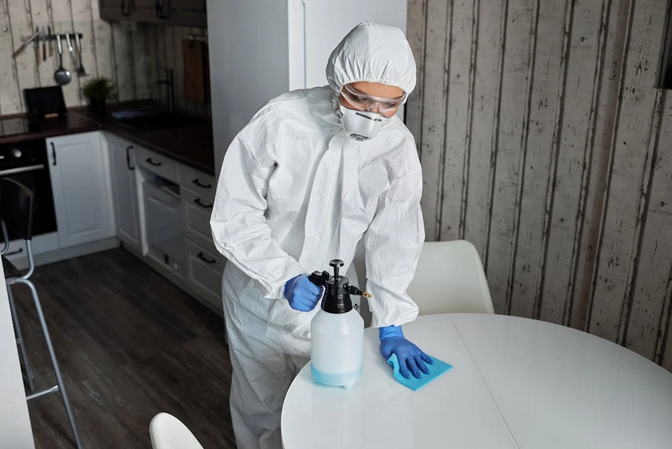Coping Mechanisms for Death Cleanup Professionals

Death cleanup, or biohazard remediation, is a critical yet profoundly challenging profession. Professionals in this field are tasked with the responsibility of cleaning and sanitizing scenes following traumatic events such as suicides, homicides, and unattended deaths. The nature of unatteended death cleanup exposes them to significant emotional, psychological, and physical stress. Effective coping mechanisms are essential to maintain their mental health and overall well-being. This article explores various strategies that death cleanup professionals can use to cope with the demands of their jobs.
The Emotional Toll
There are plenty of options when it comes to unatteended death cleanup near you, making it clear that it has become a common service to find. However, did you know that the service comes with unwanted mental effects for those involved?
Before delving into coping mechanisms, it’s important to understand the emotional burden this work can take. Death cleanup professionals regularly encounter scenes of profound tragedy and loss. Repeated exposure to such environments can lead to emotional burnout, compassion fatigue, and secondary traumatic stress. Recognizing these potential impacts is the first step in developing effective coping strategies.
Professional Support and Counseling
Access to professional support and counseling is vital for death cleanup professionals. Many companies in this field offer Employee Assistance Programs (EAPs) that provide confidential counseling services. Speaking with a trained and experienced mental health specialist can help workers process their experiences, develop healthy coping strategies, and address any signs of trauma or stress. Regular counseling sessions can be a proactive approach to maintaining mental health.
Peer Support Groups
Connecting with peers who understand the specific problems of death cleaning may be really valuable. Peer support groups provide a secure environment for professionals to share their stories, express their emotions, and give mutual support. These meetings can assist in lessening feelings of loneliness and offer practical suggestions for dealing with the emotional demands of the work. Regular meetings or casual check-ins with peers might help to build community and resilience.

Physical Health and Exercise
Maintaining physical health is another important aspect of coping with the demands of death cleanup work. Regular physical training can help reduce stress, improve mood, and boost overall well-being. Activities such as running, yoga, or even a brisk stroll can release endorphins, which are natural mood elevators.
Boundaries and Time Management
Setting clear boundaries between work and personal life is crucial for preventing burnout. Death cleanup professionals should establish routines that allow them to disconnect from work and recharge. This might include setting specific times for work-related tasks, creating a relaxing home environment, and engaging in hobbies or practices that bring joy and relaxation. Time management skills can also help professionals balance their responsibilities and avoid becoming overwhelmed.
Training and Education
Ongoing training and education can empower death cleanup professionals with the knowledge and skills they need to handle their work effectively. Understanding the best practices for biohazard remediation, safety protocols, and emotional resilience can enhance confidence and reduce stress. Many companies offer training programs that cover both technical skills and mental health awareness, ensuring workers are well-prepared for the demands of their jobs.
Personal Coping Strategies
In addition to professional support, individuals can develop personal coping strategies to manage the emotional demands of their work. This might involve participating in creative activities, spending time with loved ones, or indulging in self-care habits like taking calming baths, reading, or listening to music. Finding activities that bring personal fulfillment and relaxation can help balance the stresses of the job.
Due to the nature of their work, death cleanup professionals face unique and significant emotional challenges. They can effectively manage the emotional and psychological demands of their job by utilizing a combination of professional support, peer groups, stress management techniques, physical health maintenance, boundary setting, ongoing training, and personal coping strategies.



